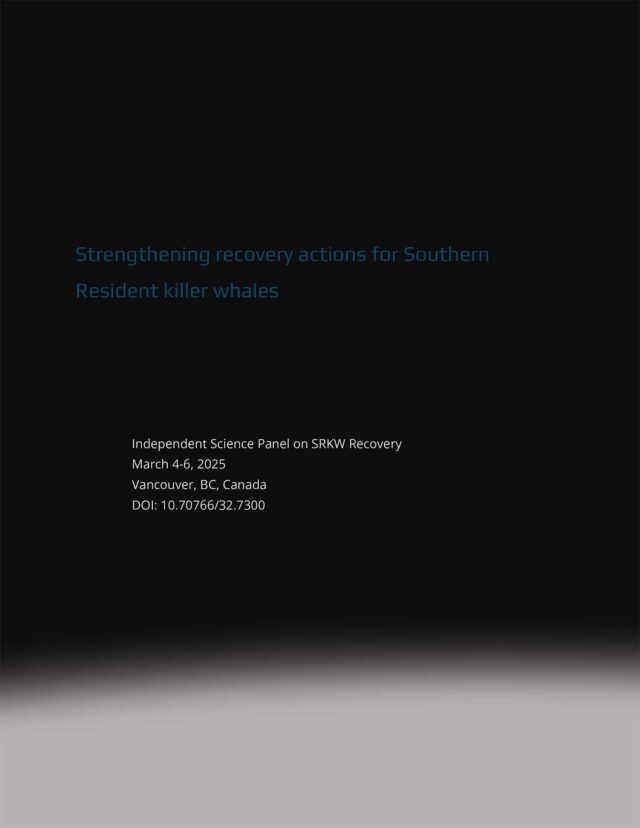Report: Strengthening recovery actions for southern resident killer whales
Published by:
David Suzuki Foundation and partners
Authored by:
Jeffery Young et al.
Partners:
Lance Barrett-Lennard,
Tanya Brown,
Maithili Devdas,
Allison Dennert,
Graeme Ellis,
Holly Fearnbach,
John Ford,
Cameron Freshwater,
Nick Gayeski,
Deborah Giles,
Hussein Alidina,
Ruth Joy,
Michael Jasny,
Eve Jourdain,
Misty MacDuffee,
Paul Paquet,
Amy Rowley,
Peter Ross,
Dave Rosen,
Paul Tixier,
Dominic Tollit,
Jared Towers,
Jennifer Tennessen,
Peter Thompson,
Sheila Thornton,
Scott Toews,
Valeria Vergara,
Michael Weiss,
Rob Williams,
Brianna Wright,
Jeffery Young
DOI:
https://doi.org/10.70766/32.7300
Oceans and fresh water, Biodiversity British Columbia, species at risk, southern resident killer whales
A new report by an independent science panel calls for urgent and bold action to aid in the recovery of endangered southern resident killer whales. Despite two decades of protection under both Canadian and U.S. legislation, this unique population has declined to 73 individuals, with no sign of recovery.
For the first time, scientists have proposed a road map for southern resident recovery on both sides of the Canada – U.S. border. The recommendations flow from more than three decades of scientific research on the population, its health and the factors preventing recovery.
The report is the outcome of a three-day science workshop held in Vancouver in March 2025, which brought together 31 experts from Canada, the U.S. and Europe to ask a hard question: What will it take to save this population? Participants included specialists in killer whale biology, health and behaviour, Chinook salmon ecology, underwater noise, toxicology and species conservation. Their objective was to evaluate the effectiveness of current conservation measures and identify the evidence-based actions most urgently needed to enable recovery.
